Even though journalism major Julia Mueller had participated in mock trial throughout high school, she was nervous about trying out for the team as a first-year student at the University of Oregon.
She shouldn’t have been. Within months, she became the captain of a traveling team and continued to move her way up through leadership positions in the program. In four years, Mueller held the elected positions of vice president of communications and president of the Mock Trial Cabinet, and is currently the captain of the A Team, one of the top four teams that travels to out-of-state competitions. She describes the experience of being in those leadership positions as “formative” to her college experience and beyond.
“Mock trial does more than just give students a space to practice public speaking or writing,” Mueller said. “It also necessitates creative thinking and problem solving in a competitive team dynamic.”
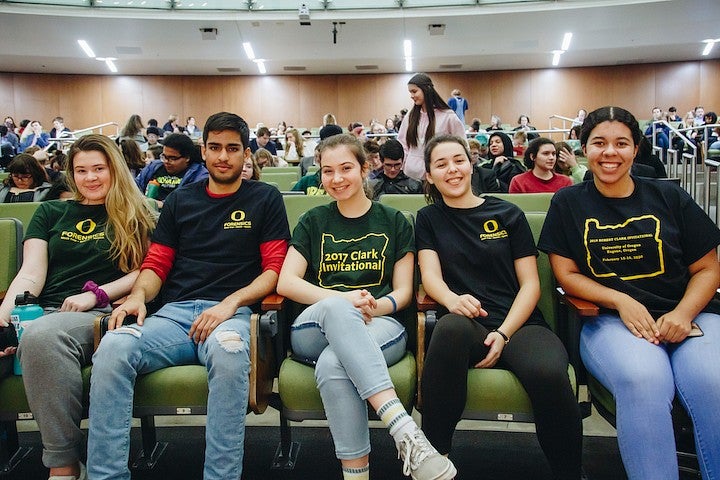
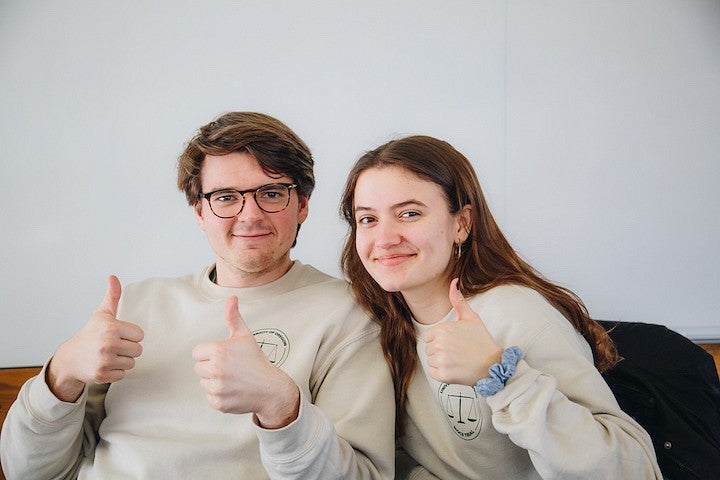
Oregon Forensics, the program that includes mock trial, was founded just one week after the university opened its doors in 1876 and has a rich history that includes participating in the first radio debate, the first televised debate, and the first debate tour. The program includes speech, debate, and since 2010, mock trial.
“The near future is very bright and the long-term future is limitless,” says Trond Jacobsen, director of Oregon Forensics.
The debate program recently hosted the David Frank Tournament of Scholars for collegiate speech and debate on Feb. 22 and 23, and the Robert D. Clark Invitational for high school forensics on Feb. 15 and 16. It was the sixth annual David Frank tournament and 15 colleges, including UO, participated. The Robert D. Clark Invitational, named after former director of Forensics and the founder of Clark Honors College, is one of the oldest tournaments in the country and included high schools hailing from Oregon, Washington, and California.
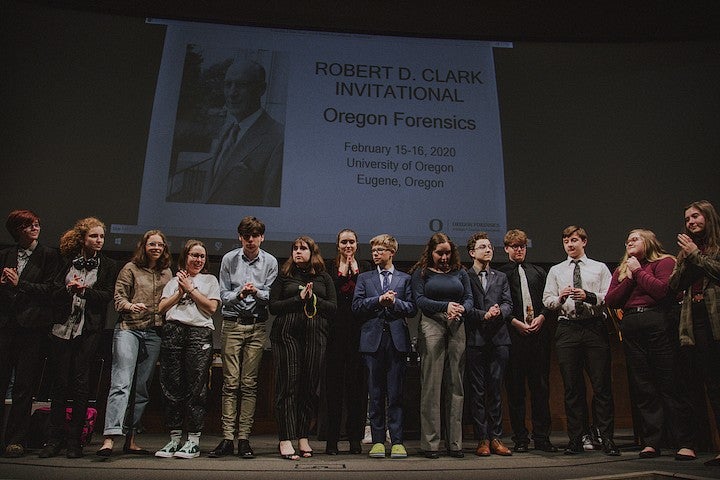
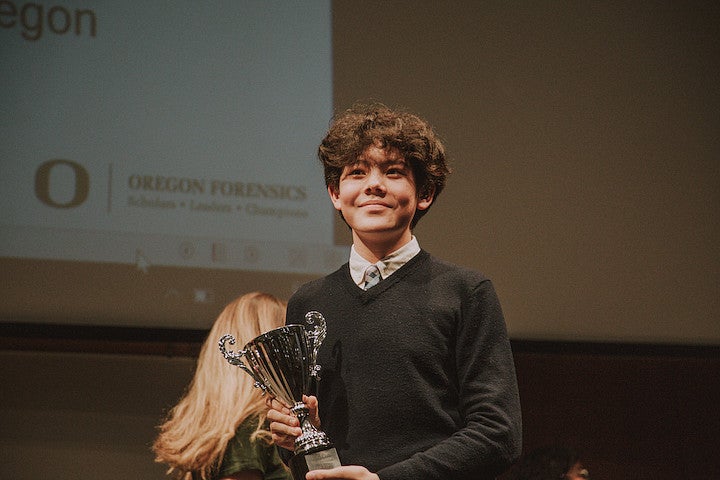
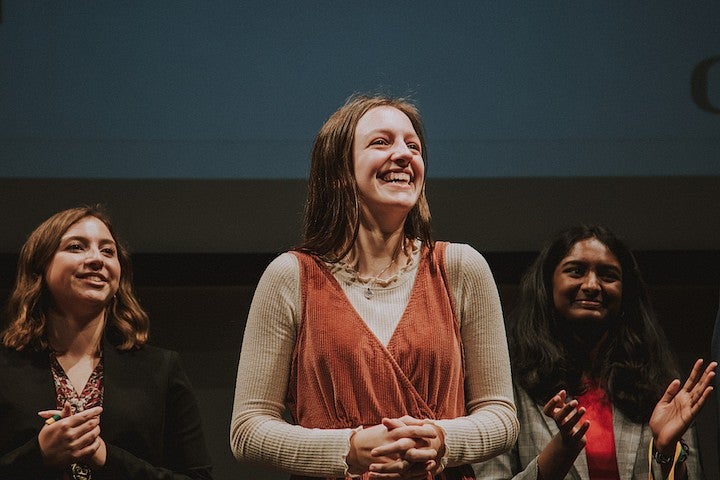
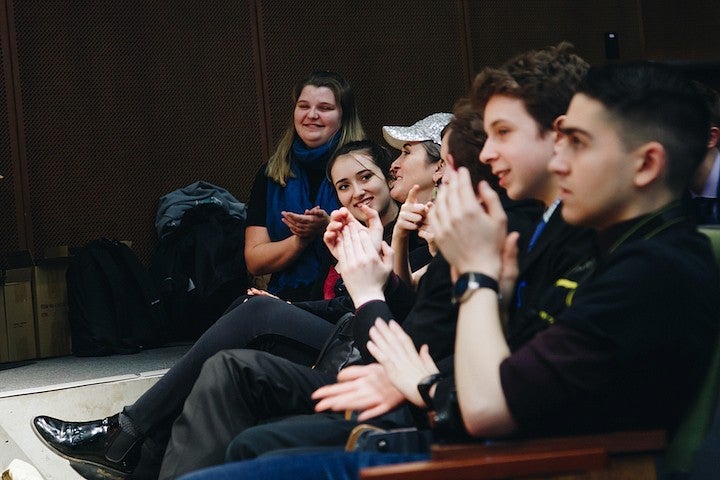
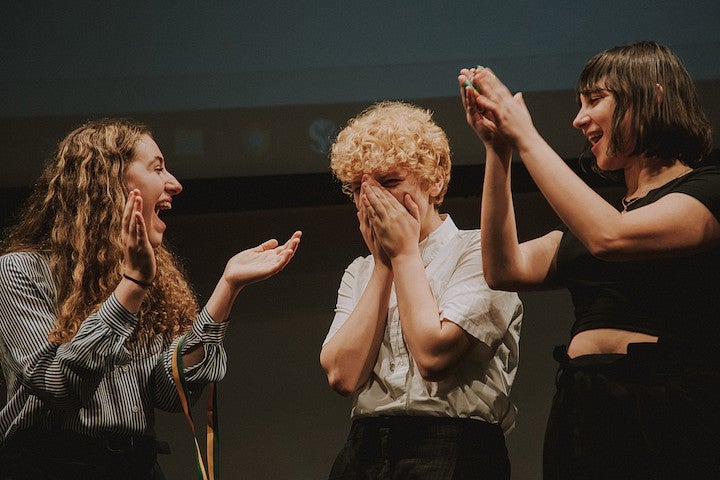
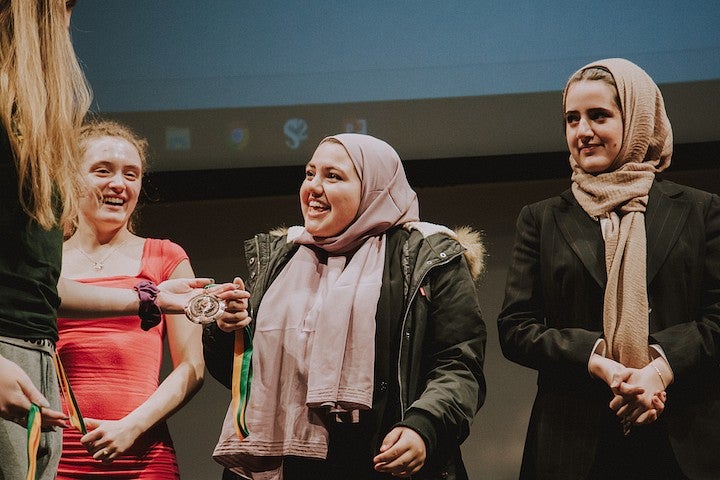
“It's a great way to exercise creativity while playing with logic, and learn about the law while working in a collaborative, supportive environment," Mueller says, describing her experience in mock trial. Outside of the team, she is excited to be working on her Clark Honors College thesis and attending law school in the future.
At the college level, there are approximately 700 mock trial teams nationwide that are given the same criminal or civil case and then must build their own case theory, which includes “writing statements, crafting arguments, and preparing witnesses,” in preparation for the tournaments. The UO’s mock trial program finished its 2019-20 season with 2nd and 3rd place trophies at University of California, Davis, 3rd place at the University of Washington, 5th place at University of California, Berkeley, and 6th place at University of California, Irvine, and University of California, Los Angeles.
At the Seattle Regional Tournament, the team won five individual witness awards (Madi Vann, Celebre Fouka-Nganga, Lexi Wong, Blake Hardin, and Kianna Reid), four individual attorney awards (one award each for Noah Jordan and Megan Priaulx, and Mueller received two awards), and bids for two of our four teams to advance to the Opening Round Championship Series in Geneva, Illinois in March. From there, the team hopes to advance to the National Championship Tournament, the final competition of the mock trial season.
“It was just a few years ago that it started and so the progress in the number of students, their ability, their training and learning, then their competitive success is just going through the roof year by year by year,” said Trond Jacobsen, director of Oregon Forensics for the last seven years.
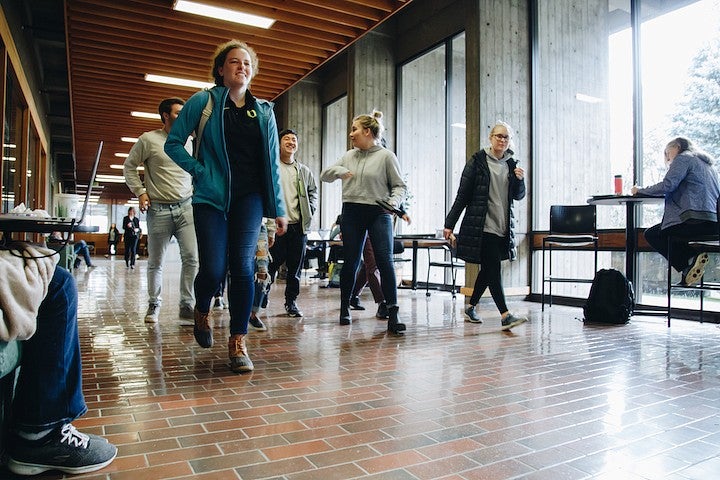
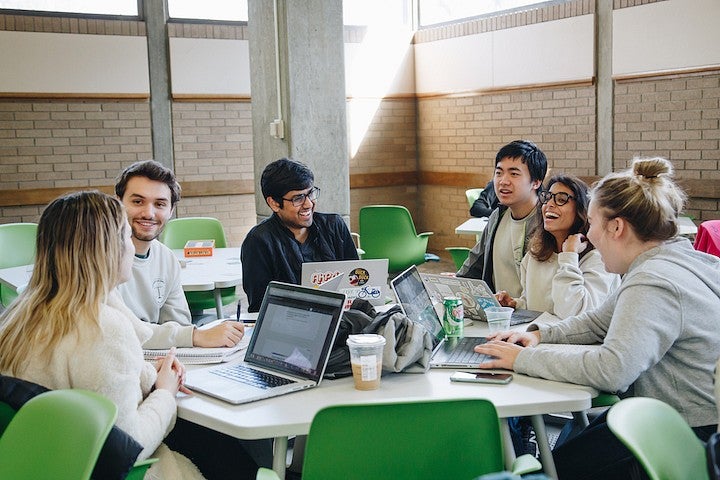
Jacobsen was also a member of the debate team when he was a student at the University of Oregon “many years ago.” Also a native of Eugene, Jacobsen feels fortunate to live in his hometown and be a part of the same program that improved his life and the lives of all the students that have cycled through the Oregon Forensics program.
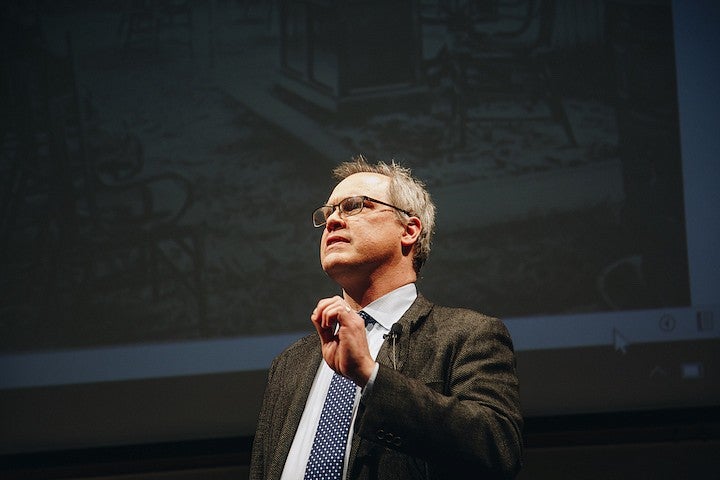
Something that makes the forensics program unique is its “no cut policy.” Over 100 students applied to be part of the mock trial team last October, the highest number in the history of the program. Seven active teams were then compiled for the 2019-20 competitive season, each having eight to 13 members. This year, the debate team is made up of approximately 40 students.
Though the program is affiliated with the Clark Honors College, all students are welcomed to join. “You don’t have to be in the honors college and many students are not,” said Jacobsen. “There’s always space and opportunity for anybody who is interested in being a part of the program.”
Jacobsen is also proud to announce that the University of Oregon does not only have one of the largest Forensics programs in the country, but that the majority of particpants are female students.
“The near future is very bright and the long-term future is limitless,” he added.
Story by Kaitlyn Jimenez
Photos by Sarah Northrop
